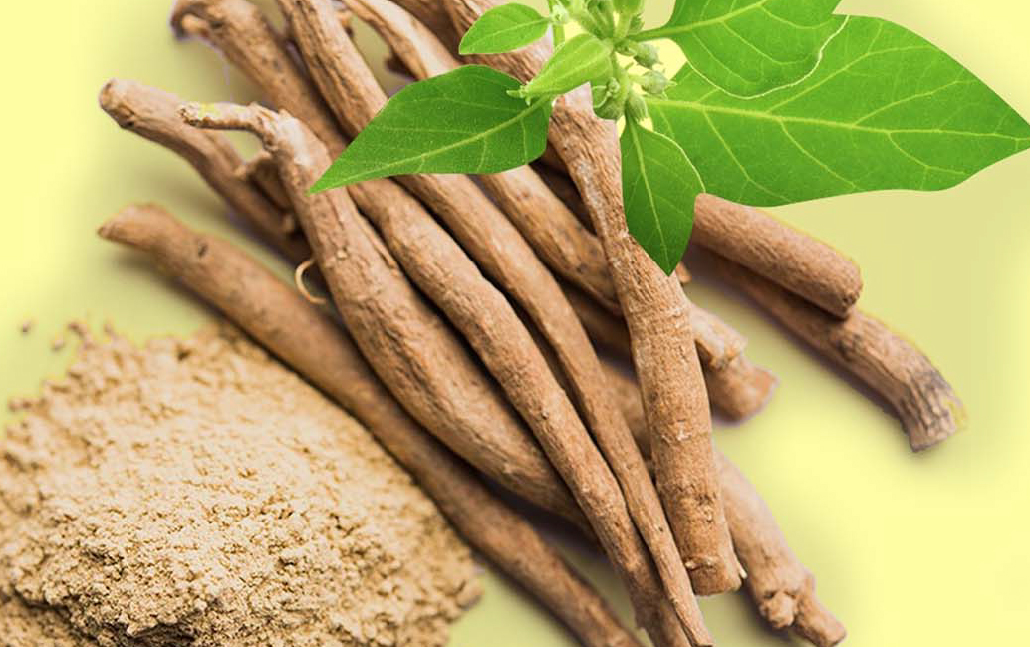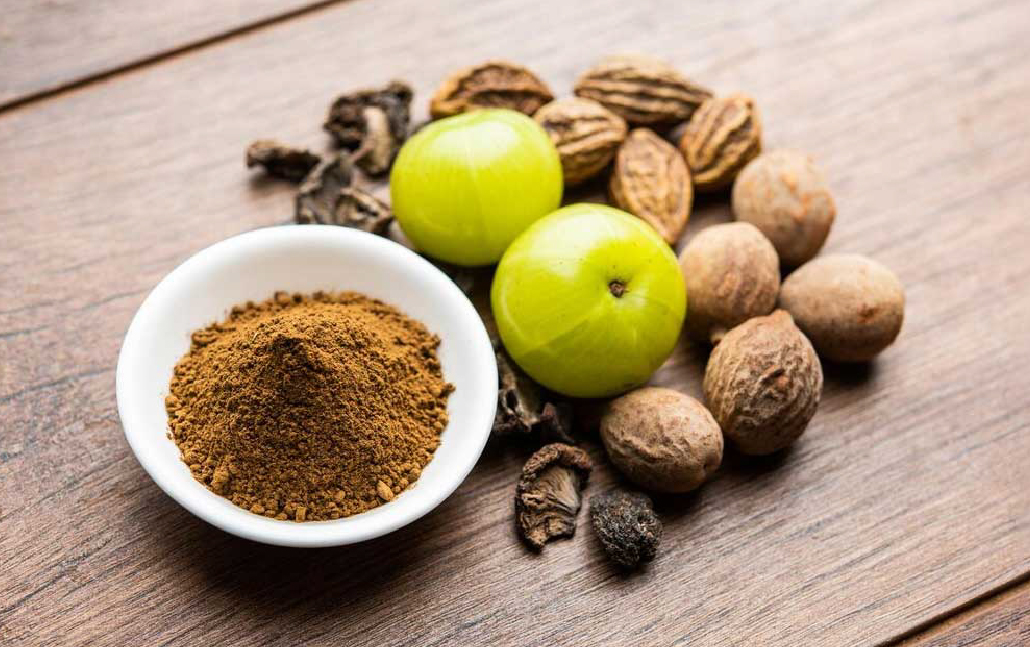
FEATURED
4 Powerful Ayurvedic Herbs and Spices with Health Benefits
- Written By: Akshit Jain
Ayurveda is a traditional Indian system of medicine. It aims to preserve health and wellness by keeping the mind,
body, and spirit in balance and preventing disease rather than treating it.
To do so, it employs a holistic approach that combines diet, exercise, and lifestyle changes (1 Trusted Source).
Ayurvedic herbs and spices are also an important component of this approach. They’re thought to protect your
body from disease and offer a variety of health benefits, including improved digestion and mental health.
Here are 4 Ayurvedic herbs and spices with science-backed health benefits.
1. Ashwagandha

Ashwagandha (Withania somnifera) is a small woody plant native to India and North Africa. Its root and berries are
used to produce a very popular Ayurvedic remedy.
It’s considered an adaptogen, which means that it’s believed to help your body manage stress more effectively. Research has shown that it reduces levels of cortisol, a hormone that your adrenal glands produce in response to
stress.
There’s also evidence linking ashwagandha to lower levels of anxiety and improved sleep in people with stress and
anxiety disorders.
Moreover, research shows that ashwagandha may enhance muscle growth, memory, and male fertility, as well as
lower blood sugar levels.
However, larger studies are needed to confirm these benefits .
Finally, there’s evidence that it may help reduce inflammation and boost your immune system, though more studies
are needed.
SUMMARY
2. Boswellia

Boswellia, also known as Indian frankincense or olibanum, is made from the resin of the Boswellia serrata tree. It’s
known for its easily recognizable spicy, woody aroma.
Research suggests that it may be particularly effective at reducing inflammation by preventing the release of
inflammation-causing compounds known as leukotrienes.
In test-tube and animal studies, boswellia appears to be as effective as non-steroidal anti-inflammatory drugs
(NSAIDs), yet with fewer side effects.
Human studies link boswellia to reduced pain, improved mobility, and a greater range of movement in people with
osteoarthritis and rheumatoid arthritis. It may also help prevent oral infections and fight gingivitis.
Moreover, it may improve digestion in people with ulcerative colitis and Crohn’s disease, as well as breathing in
people with chronic asthma.
SUMMARY
3. Triphala

Triphala is an Ayurvedic remedy consisting of the following three small medicinal fruits (26Trusted Source):
amla (Emblica officinalis, or Indian gooseberry)
bibhitaki (Terminalia bellirica)
haritaki (Terminalia chebula)
Test-tube and animal studies show that triphala may reduce inflammation caused by arthritis, as well as prevent or limit the growth of certain types of cancer.
It may also function as a natural laxative, reducing constipation, abdominal pain, and flatulence while improving the frequency and consistency of bowel movements in people with gut disorders.
In addition, a limited number of studies suggest that a mouthwash containing triphala may reduce plaque buildup,
decrease gum inflammation, and prevent the growth of bacteria in the mouth.
SUMMARY
4. Brahmi

Brahmi (Bacopa monieri) is a staple herb in Ayurvedic medicine.
According to test-tube and animal studies, brahmi appears to have strong anti-inflammatory properties that are as effective as common NSAIDs.
Studies also link it to improvements in learning rates, attention, memory, and information processing, as well as reduced symptoms of attention deficit hyperactivity disorder (ADHD), such as inattention, impulsivity, poor self-control, and restlessness.
Some studies further suggest that brahmi may have adaptogenic properties, which means that it may help improve
your body’s ability to deal with stress and anxiety. However, more research is needed before strong conclusions
can be made
SUMMARY
The bottom line
Ayurvedic herbs and spices have been an integral part of traditional Indian medicine for centuries.
An increasing amount of scientific evidence supports their many proposed health benefits, including protection
against type 2 diabetes and heart disease.
Thus, adding small amounts of these herbs and spices may help both flavor your meals and boost your health.
That said, large doses may not be suitable for everyone, so make sure to seek advice from your healthcare provider
before adding Ayurvedic supplements to your healthcare regimen.
And remember, Ayurveda employs a holistic approach to health that also includes physical activity, adequate
sleep, stress management, and eating a variety of fruits and vegetables daily.
Read next...

What is Cupping?
12th Oct | Samuel K.
Cupping therapy is an alternative
medical treatment that involves
placing cups on the skin to cre….
Read More

The Definitive Guide to Aromatherapy
12th Oct | Samuel K.
Aromatherapy is the use of
essential oils from plants as a
complementary health approa..
Read More

Introduction to Autosuggestion
12th Oct | Samuel K.
Autosuggestion is a psychological
technique developed by
pharmacist Émile Coué at the ….
Read More
